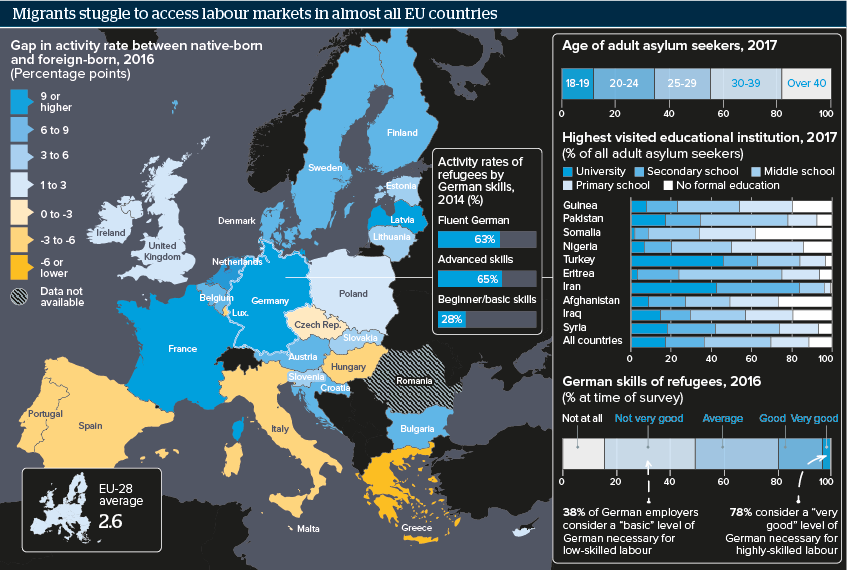Language skills are key to integration in Germany
Activity rates are low for asylum seekers as many do not have the language skills required by employers
Source: BAMF, Eurostat, OECD
Outlook
As the number of asylum applications in Germany continues to drop (2016: 745,545; 2017: 222,683; January-May 2018: 78,026), the focus of the political debate is likely to shift to migrants’ integration into society and the labour market. Despite relatively liberal laws (under certain conditions, asylum seekers can access the labour market after three months) and favourable demographics, activity rates are low.
The largest problem facing most asylum seekers is insufficient German language skills. Combined with mismatches between many asylum seekers’ qualifications and the demands of the German labour market, this means that quick successes may be difficult to achieve.
Impacts
- Housing asylum seekers in closed centres would limit their contacts with Germans and their exposure to German culture.
- In the long term, migrants could help close skills gaps in certain industries.
- Reducing bureaucracy could encourage companies to employ more asylum seekers.
See also
- Integrating migrants will be a challenge for Europe - Aug 15, 2018
- Immigration will benefit Germany’s labour market - Mar 8, 2017
- More graphic analysis
